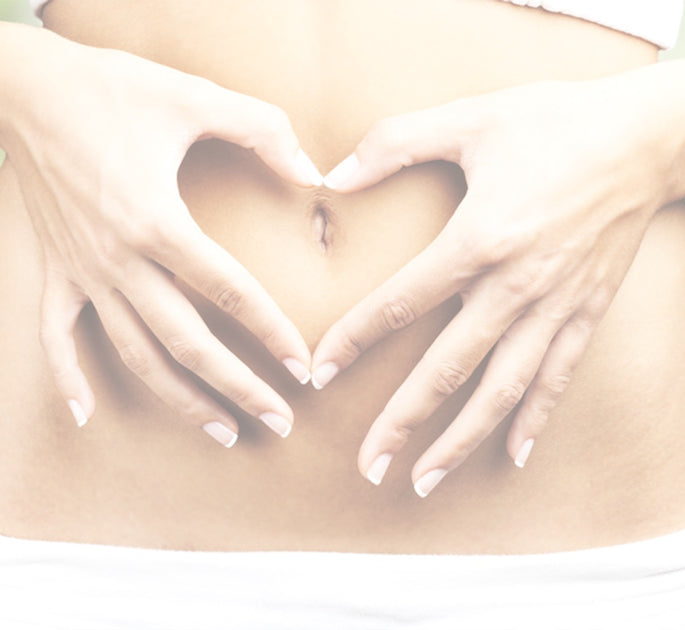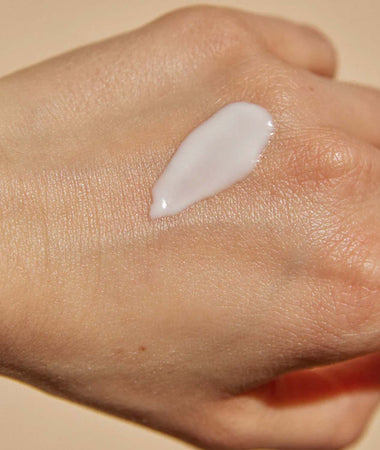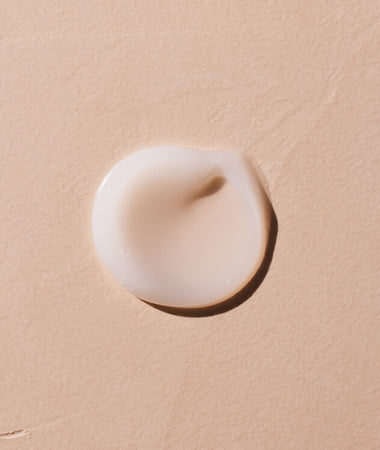
1 Month Pregnant: Symptoms, Baby Development, And Tips
When you're 1 month pregnant, the month starts like any other. But a couple of weeks later, you may notice a few strange things. Perhaps it's some oily patches on your face or a bit of bloating in the evenings.
Since the changes are so subtle, most women don’t suspect pregnancy until they’re about five weeks along, which is in month two of the pregnancy.
But whether or not you know you’re pregnant, a lot is happening in terms of your baby’s development. So let's look at what's going on.
Table Of Contents
- 1 Month Pregnant: Your Baby
- 1 Month Pregnant: Symptoms
- Do You Visit The Doctor When You’re 1 Month Pregnant?
- Top Tips For Your First Month Of Pregnancy
1 Month Pregnant: Your Baby

Pregnancy timelines are a bit odd. The first month of pregnancy is weeks 1-4 of your pregnancy. But you aren’t actually pregnant for all four of those weeks.
That’s because doctors use your last menstrual cycle date to calculate when your baby is due. And your cycle happened before you conceived. Understandably, this causes some confusion. Because when you’re four weeks pregnant, you’ve only been pregnant for two weeks.
In any case, whenever a sperm and egg unite, the cells begin to divide, forming a zygote. And that formation ignites a period of rapid development.
Developmental Milestones
Within 24 hours of conception, the zygote splits into two cells and then four. This division continues as your baby makes its way up your fallopian tube and into your uterus.
By this point, the zygote has become a hollow ball with an outer layer of cells and an inner core filled with fluid. This is known as a blastocyst.
In your womb, the blastocyst attaches itself to the uterine wall and implants into your endometrial lining, which normally sheds during your menstrual cycle. Within a few days, the blastocyst becomes an embryo.
Your baby is considered an embryo until the end of your eighth week of pregnancy. From that point on, they’re called a fetus. But that’s not until next month. So let’s get back to what happens when you’re 1 month pregnant.
An amniotic sac also forms and is filled with amniotic fluid. This sac provides a safe and nurturing environment for your baby to grow in. It also protects them from the outside world.
As the embryo grows inside the sac, the basic structures for major organs form and start to take shape. By week four, the neural tube, which becomes your baby’s brain and spinal cord, is fully formed.
And the endometrial lining mentioned earlier thickens and starts to nourish your baby. Thus, you miss your period and have your first major pregnancy symptom.
Your Baby’s Size
By the time you’re four weeks pregnant, your baby is the size of a poppy seed. That’s really tiny!
But if all goes well, they’ll continue growing, and in just a few short weeks, they’ll be the size of a kidney bean.
1 Month Pregnant: Symptoms
When you’re 1 month pregnant, it’s common to not realize you’re pregnant. As we mentioned earlier, most women don’t discover they’re expecting until about week five of the pregnancy, which is in the second month.
However, some women notice some early pregnancy symptoms before then. Let’s take a look.
Physical Changes
Nothing obvious is happening yet, but subtle changes in your body may occur. You may experience some general discomfort. Or you might have a couple of the symptoms listed below.
On the other hand, you may not notice anything. And that's OK! It doesn't mean there's anything wrong.
Let’s look at how your body could change during the first month of pregnancy.
Your Skin
As soon as you conceive, your hormones kick into overdrive. This sudden influx of hormones can do strange things to your skin.
The greasy patches and pimples that occur can make you feel like you’re back in middle school going through puberty all over again. Your skin could also feel drier than normal and start to itch.
It's important to use gentle cleansers that are free of fragrances and harsh chemicals during this time. The Mustela Shampoo & Body Cleansing Bar is a great choice.
And if you’re dealing with dry skin, our Multi-purpose Balm with 3 Avocado Extracts can help restore moisture. You can use this balm from head to toe to give your skin the nourishment it needs throughout your entire pregnancy.
Bloating
Your hormones are also causing your digestive system to slow down. If it’s been a few days since you had to go number two, that’s perfectly normal during this time.
Unfortunately, constipation can cause bloating, contributing to that not-so-pleasant feeling of being extra gassy. You may also find yourself burping more than usual. This is also normal for early pregnancy.
Tiredness
If you notice yourself slowing down and feeling ready for bed a bit earlier, don’t feel guilty. Fatigue is a common symptom; you should listen to your body and rest when needed.
Emotional Changes

Your body isn’t the only thing going through changes. Your mind is too, and these hormonal shifts can lead to intense emotions.
You may feel extra anxious or like your moods are swinging from one extreme to the other for no reason. You may sometimes get a little weepy or burst into laughter without knowing why.
Since you likely don’t know you’re pregnant, these emotional outbreaks may concern you, especially if you’re not normally an emotional person.
But don't worry, you aren't going crazy! It’ll all make sense when you take the pregnancy test in a couple of weeks and discover you’re expecting.
Do You Visit The Doctor When You’re 1 Month Pregnant?
Most women call to schedule their first prenatal appointment when they find out they're pregnant. Since this doesn't usually happen until month two of your pregnancy, you likely won't have an appointment this month.
However, if you're concerned something is wrong, you should touch base with your doctor.
Top Tips For Your First Month Of Pregnancy
It can be hard to deal with things when you don't know what’s happening. That's why put together this list of top tips for surviving the first month of pregnancy:
Eat Well
Now more than ever, it’s important to be getting in all the essential nutrients your body needs. Focus on eating fresh fruits, veggies, whole grains, good proteins, and plenty of healthy fats.
You’ll also want to avoid some foods if you think you could be pregnant. For example, you shouldn’t consume fish and seafood, soft cheeses, raw meats, unpasteurized foods, or alcohol during pregnancy.
Doing your best to eat a healthy diet will give you the energy and nutrition to support your body through this time.
Stay Hydrated
Drinking plenty of water will help keep your skin hydrated and reduce the risk of constipation. Water also helps to flush out toxins from the body and maintain a healthy environment for your developing baby.
Get Plenty Of Rest
Your body needs rest as it goes through all these changes, so make sure you get at least seven or eight hours of sleep each night.
Exercise Regularly
Gentle exercise can help you keep your energy levels up and ease some common pregnancy symptoms, like bloating and constipation. Aim to do something active for at least 30 minutes several days a week.
Take Prenatal Vitamins
Even if you aren't sure you're pregnant yet, it's a good idea to take prenatal vitamins if you even suspect you could be. This will help give your body the extra support it needs to create a healthy environment for your baby.
Folic acid is especially important in early pregnancy, as it helps prevent major birth defects.
Talk To Your Partner
If you have a partner or close friend to talk to, don’t be afraid to share your worries and concerns with them.
Share what you’re experiencing and what’s on your mind. Having someone emotionally and physically supportive by your side can help you get through this early stage of pregnancy and beyond.
1 Month Down, 8 To Go!

If you're 1 month pregnant, you may not have even taken a pregnancy test yet. But nonetheless, your pregnancy journey has begun. Each day that passes brings you closer to meeting your little bundle of joy
The next eight months may bring some challenges (and stretch marks), but you can count on Mustela to provide guidance and support your skin every step of the way.
Good luck, mama, we're rooting for you!
- reg.
- $28.00
- Sale price
-
$28.00
- reg.
-
reg.
- Unit price
- /per
- reg.
- $16.00
- Sale price
-
$16.00
- reg.
-
reg.
- Unit price
- /per
- reg.
- $23.00
- Sale price
-
$23.00
- reg.
-
reg.
- Unit price
- /per
Suggested Articles

6 Tips For Finding The Best Maternity Clothes

7 Breastfeeding Myths & Realities

The Best Postpartum Care Plan For New Mothers
Get tips, news
and exclusive offers







